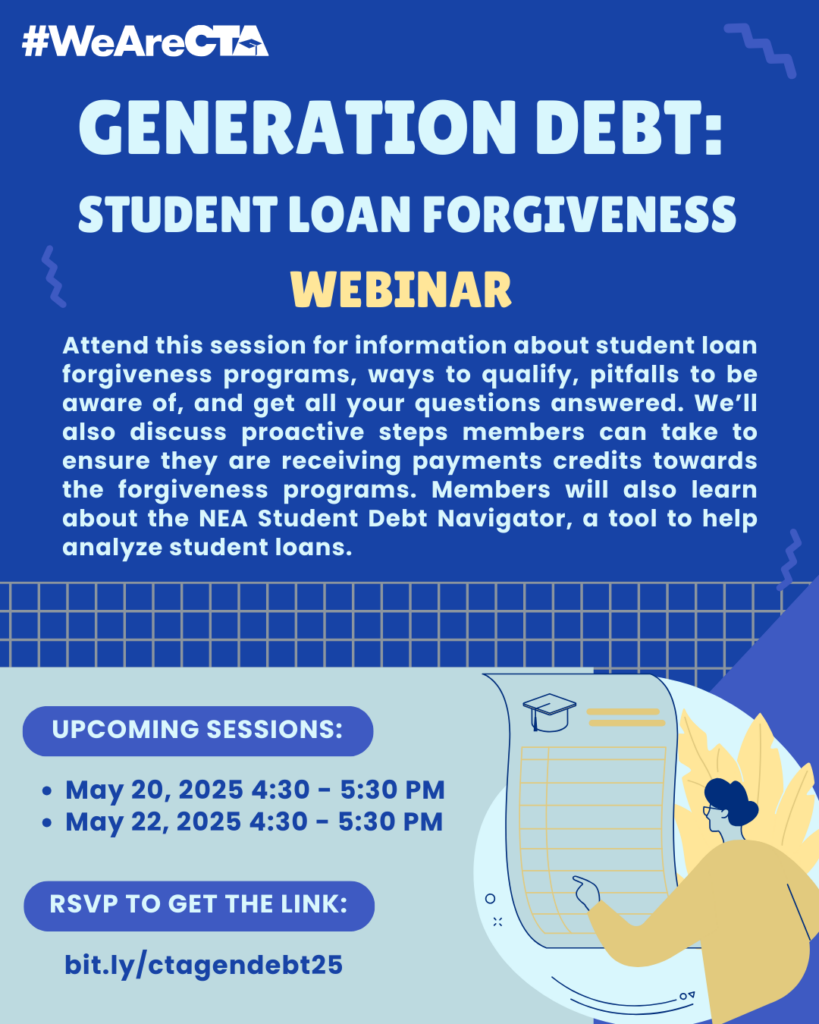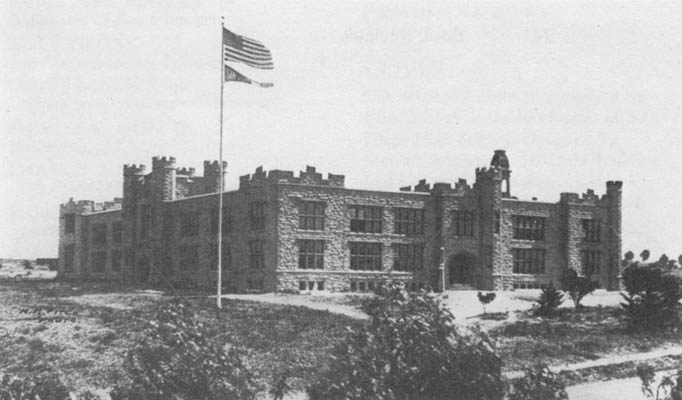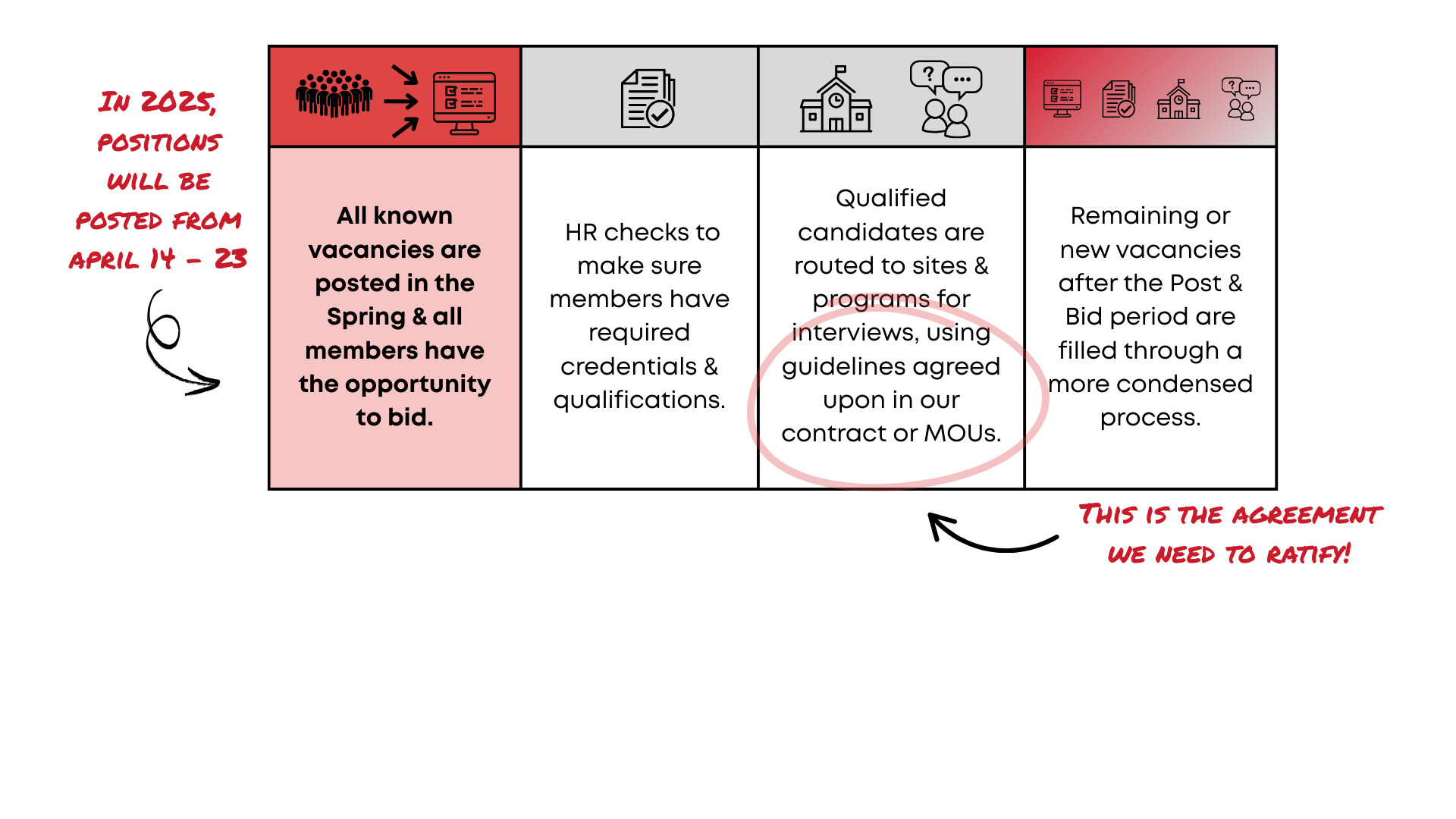Bargaining Update - May 8, 2025

As a direct result of SDEA members’ collective pressure with pickets at 125 schools last week, yesterday the District finally brought a response to our proposal on pay for this school year. Most of the day was spent on negotiations over pay, but SDEA also shared our two remaining proposals related to evaluations.

We reached a tentative agreement on wages for the 2024-25 school year!
- 0.5% retroactive to July 1, 2024
- 1% retroactive to January 1, 2025
- That would be a total 1.5% raise for all educators as they begin next school year!
This raise is higher than the state COLA, and while pay for future years is still to be decided, educators now have an answer about their retroactive raises going into the summer.
Read the full tentative agreement on Article 7 Wages: 2024-2025 Reopener and see all proposals passed back and forth yesterday on our tracker.
What’s next? SDEA members will need to vote to ratify our tentative agreement on 2024-2025 raises, so look for more information and a ballot from Simply Voting sent to your district email on Monday, May 19. (As a reminder, only SDEA members vote.) Once ratified, all educators who are part of the bargaining unit can expect retroactive pay by December 31, 2025.

When negotiations resume after summer, we’ll need to resolve some other pay issues that directly affect the staffing of vital programs:
- TK Early Childhood Education (ECE) Co-Teacher Stipends: TK ECE co-teachers’ $4250 annual stipend currently expires along with our contract. On the first day of negotiations, we proposed to extend this stipend in our Appendix B proposal but the District has yet to respond. Letting this stipend lapse would be a significant pay cut for our lowest-paid educators. The District has historically struggled to staff Early Childhood Education and has announced the addition of 23 more TK classrooms next school year. Cutting TK ECE co-teacher pay now is a shortsighted move by the District considering the urgent need to recruit and retain the highest quality teachers for our youngest learners.
- Special Education Stipends: We have proposed a $4000 Education Specialist annual stipend to support with filling ongoing vacancies as well as caseload overage remedies that will help overwhelmed educators. (See our previously proposed changes to Article 29 and Appendix A, Section 8.02)

We presented two connected proposals aimed at strengthening and simplifying the educator evaluation process. A clear, supportive evaluation system is essential for retaining educators and helping to support our professional growth, without giving administrators arbitrary and unchecked power. Both SDEA members and District leaders have been working for years to improve evaluations, and these proposals would build on that foundation to make evaluations more meaningful and equitable to better equip us to meet student needs.
Articles 14 and 18: Evaluation Procedures and Peer Review and Enrichment (PREP)
Proposed improvements include:
- Using the “alternative” evaluation process as the main evaluation process moving forward for all educators.
- Guaranteeing the 5-year evaluation cycle for qualified educators.
- Giving educators greater control in choosing goals aligned with professional standards and best practices.
- Creating a joint “Extended Advisory” panel with SDEA members and District representatives, to ensure fairer decisions about support and next steps for educators needing improvement.
Read all proposed changes to Article 14: Evaluation Procedures and Article 18: PREP. (Since this is a major overhaul to Article 14, that version with all the changes might be hard to read. A clean copy is available here, which is the language as it would read if this proposal is accepted as is.)
Read full proposals:
See our tracker for all proposals exchanged so far and all tentative agreements, with links to read the full text of each.
What's next?
- As union educators, we need to use our collective power to defend public education on a larger scale. Saturday, May 17 is a statewide day of action to Fight for Schools. SDEA members will join other local educators and community allies to stand up for our students against federal threats. Here in San Diego we will meet at Roosevelt Middle School at 11:00am to rally and march together.
- As the school year ends and educators have a much needed chance to rest, we know we need to return next school year ready to keep fighting for a fair contract and the schools our students deserve. Because When We Fight, WE WIN!

Madison High School, just one of the many schools who picketed last week
SDEA’s Bargaining Team
Kyle Weinberg, SDEA President, Laurie Bailon, Restorative Justice Teacher, Bell MS; Carly Bresee, Ed. Specialist: Moderate/Severe, Perkins K-8, Sarah Darr, SDEA Secretary, WCW Campaign Organizer & Senior SLP; Christina Gallegos, ECSE Teacher, Rodriguez ES; Candace Gyure, School Nurse; Stacy Hernandez, SDEA Bargaining Chair & 2nd Grade Teacher, Dailard El.; Andrew Melia, School Psychologist, Riley School; Elizabeth Miller, Ed. Specialist: Mild/Moderate, Lewis MS; Eri Nall, Head Counselor; Kiki Ochoa, History and Ethnic Studies Lead Teacher, Lincoln HS; Lori Schmersal, PE Teacher & Coach, Clairemont HS; plus SDEA staff Anthony Saavedra, Executive Director, Sara Holerud, Organizer, and Rafal Dobrowolski, Contract Specialist

Know Your Rights: Preparation
As we finish the school year (and maybe have conversations about next year's schedules), here are some contractual rights to keep in mind.
- Know Your Rights: Preparation Days
- Know Your Rights: Secondary Preparation Time
- Know Your Rights: Elementary Preparation Time - updated to reflect increases as of the 2024-25 school year
There are many more resources available to help you understand your contractual rights!
Still trying to settle Special Education Grievances
The District rejected SDEA’s most recent proposal to resolve Special Education caseload grievances, and instead proposed stipends that short educators once again. By keeping positions vacant and delaying remedies for violating caseload limits, they are saving money at the expense of overloaded educators and underserved students. With nearby districts offering lucrative signing bonuses, these delays only worsen an already unsustainable staffing crisis. This month, delegations of SDEA members will meet with SDUSD board members to demand they authorize their bargaining team to accept SDEA’s March 11 proposal and settle this issue now.
Toileting in TK: The Good, The Bad, and The Ugly
SDUSD recently changed its toileting policy to come into compliance with state law, which says that Preschool and TK students can’t be denied attendance if they haven’t yet reached toileting mastery. But what it means to be a union is that SDUSD doesn’t just get to decide how that new policy will be implemented. Instead, members get to bargain over the implementation of the policy as it relates to issues that impact members – like job duties, training and safety.
After three bargaining sessions on toileting, the most recent on Feb. 19, the members of the SDEA bargaining team are still pushing for a fair agreement. Here’s where we’re at:
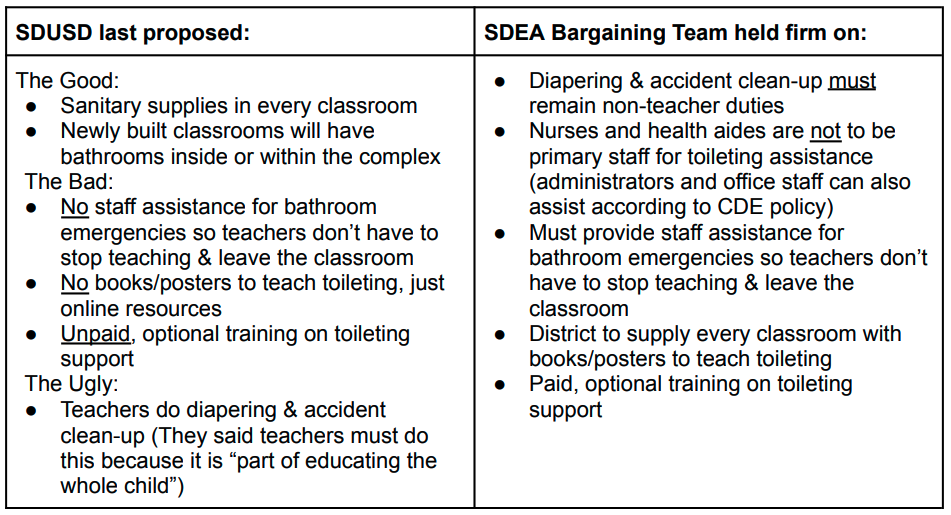
SDEA offered 5 days in March for future bargaining sessions, but SDUSD refused them all and offered no alternate dates. Refusing to bargain in good faith is an unfair labor practice and the SDEA Bargaining Team will explore all legal means to bring SDUSD back to the table.
The SDEA Bargaining Team for toileting includes union members Michelle Bryant (Education Specialist, Johnson El.), Sandra Alvarado (ECE Teacher, Balboa El.), Anna McAllister (Elementary Teacher, TK, Balboa El.), Monique Barrett (Education Specialist, SDEA Vice President), and Rascha Conners (Nurse).
*Note that this bargaining process is separate and more specific than our ongoing negotiations for the rest of our next contract. We always have the right to bargain over how policy changes impact our members!
Bargaining Update - April 24, 2025

At yesterday’s bargaining session, SDEA members on the Bargaining Team made progress with one Tentative Agreement on Job Sharing. We presented almost all of our remaining proposals related to staffing and stability and got one counterproposal. However, the District is still dragging its feet on the urgent issue of educator pay. With only one scheduled bargaining date left this school year, we’ll need to turn up the pressure at next week's pickets to send a strong message to district leadership that We Can’t Wait for fully staffed, stable and inclusive schools!

The District still has not responded to any of our pay proposals, despite the fact that Article 7 raises were the first thing we proposed when we began negotiating in February.
Last year, members ratified our reopener agreement with the understanding that we would agree on 2024-2025 raises once more financial information was available. The prospect of going into summer break without any agreement even around this year’s raises would be a reckless move by the District, considering the growing staffing crisis for impacted areas like special education.

Staffing schools was a main focus of negotiations this week, including one Tentative Agreement and two new proposals. The District accepted our proposed changes to Article 21: Job Sharing, which expand and clarify job-sharing opportunities to retain educators in our district even when they cannot work full time. Read the entire Tentative Agreement here for Article 21: Job Sharing.
SDEA presented two more proposals related to staffing:
- Protections for SDEA members & their work: With tight budgets and quickly developing technology, there is a lot of incentive for districts to get creative about how they provide required student services - whether that’s contracting out student services instead of hiring more full-time staff, or even replacing human service providers with chatbots. Our proposed changes to Article 2 include language that can protect SDEA members and their work both from Artificial Intelligence and subcontracting. See all proposed changes to Article 2: Recognition.
- Support for Bilingual/ELD educators: Along with updating language to match other proposals around compensation for additional work, our proposed changes protect the workload of English Language Development teachers by limiting the number of different levels that can be in one class. See all proposed changes to Article 22: Bilingual/ELD Teachers.

The District countered our proposal on Article 33: Discipline, and we presented a proposal on Article 31: Reduced Workload. Retaining dedicated educators is essential for school stability!
- We are still discussing how to improve our progressive discipline language. The District responded to our proposed updates to the progressive discipline process. Our changes aim to clarify the steps of progressive discipline and ensure no discipline occurs without just cause. The District’s version attempts to simplify language by referencing Education Code. We raised concerns that Ed. Code only requires just cause for suspensions and dismissals, not for lower levels of discipline (like a Letter of Reprimand). Read the District’s entire counterproposal on Article 33: Discipline.
- We proposed improvements to Reduced Workload Program language to retain educators throughout their career. Our proposed changes would close loopholes so that our Reduced Workload Program is accessible to more unit members. Some of our members are enrolled in the CalPERS pension system, since they have worked in both classified and certificated positions. Reduced Workload Programs allow school communities to retain experienced educators even when they can’t or don’t want to work full time as they near retirement, and current language only includes those enrolled in the CalSTRS pension system. See all proposed changes to Article 31: Reduced Workload.
Read full proposals:
See our tracker for all proposals exchanged so far and all tentative agreements, with links to read the full text of each.
What's next?
Our next bargaining session is in two weeks on May 8. SDEA will be presenting their last remaining proposals on Evaluation and the Peer Review & Enrichment Program. With everything else financial already on the table, it’s time for the District to stop stalling on pay for this current year. The continued delay is unacceptable, as educators already struggle to afford to live in the communities we serve. With escalating federal attacks on public education, showing up in solidarity is more important than ever. We need to make our voices heard:
- Join your school’s picket next week! Bring your signs, bring your energy, bring your community! Download a chant sheet here and hear chants modeled by fellow educators. Not sure when your school’s picket is scheduled? Ask your rep!
- Rally with educators across the state on May 17! San Diego educators are joining a statewide day of action to defend public education against federal threats. Here in San Diego we will meet at Roosevelt Middle School at 11:00am.
It’s time for our District and our State to invest in our students! We Can’t Wait!
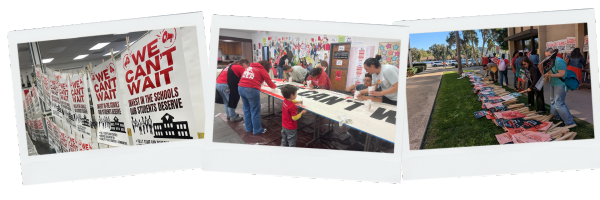
SDEA’s Bargaining Team
Kyle Weinberg, SDEA President, Laurie Bailon, Restorative Justice Teacher, Bell MS; Carly Bresee, Ed. Specialist: Moderate/Severe, Perkins K-8, Sarah Darr, SDEA Secretary, WCW Campaign Organizer & Senior SLP; Christina Gallegos, ECSE Teacher, Rodriguez ES; Candace Gyure, School Nurse; Stacy Hernandez, SDEA Bargaining Chair & 2nd Grade Teacher, Dailard El.; Andrew Melia, School Psychologist, Riley School; Elizabeth Miller, Ed. Specialist: Mild/Moderate, Lewis MS; Eri Nall, Head Counselor; Kiki Ochoa, History and Ethnic Studies Lead Teacher, Lincoln HS; Lori Schmersal, PE Teacher & Coach, Clairemont HS; plus SDEA staff Anthony Saavedra, Executive Director, Sara Holerud, Organizer, and Rafal Dobrowolski, Contract Specialist

Generation Debt: Student Loan Forgiveness Webinars
Student loans have been in the news a lot recently and many members have questions about what they should do. Attend this CTA session for information about both student loan forgiveness programs, ways to qualify, pitfalls to be aware of, and get all your questions answered. We’ll also discuss proactive steps members can take to ensure they are receiving payments credits towards the forgiveness programs. Members will also learn about the NEA Student Debt Navigator, a tool to help analyze student loans.
RSVP for an upcoming session:
When members RSVP, they will get a follow-up email with the WebEx link.
Letters in Solidarity: Fight for Our Schools on May 17
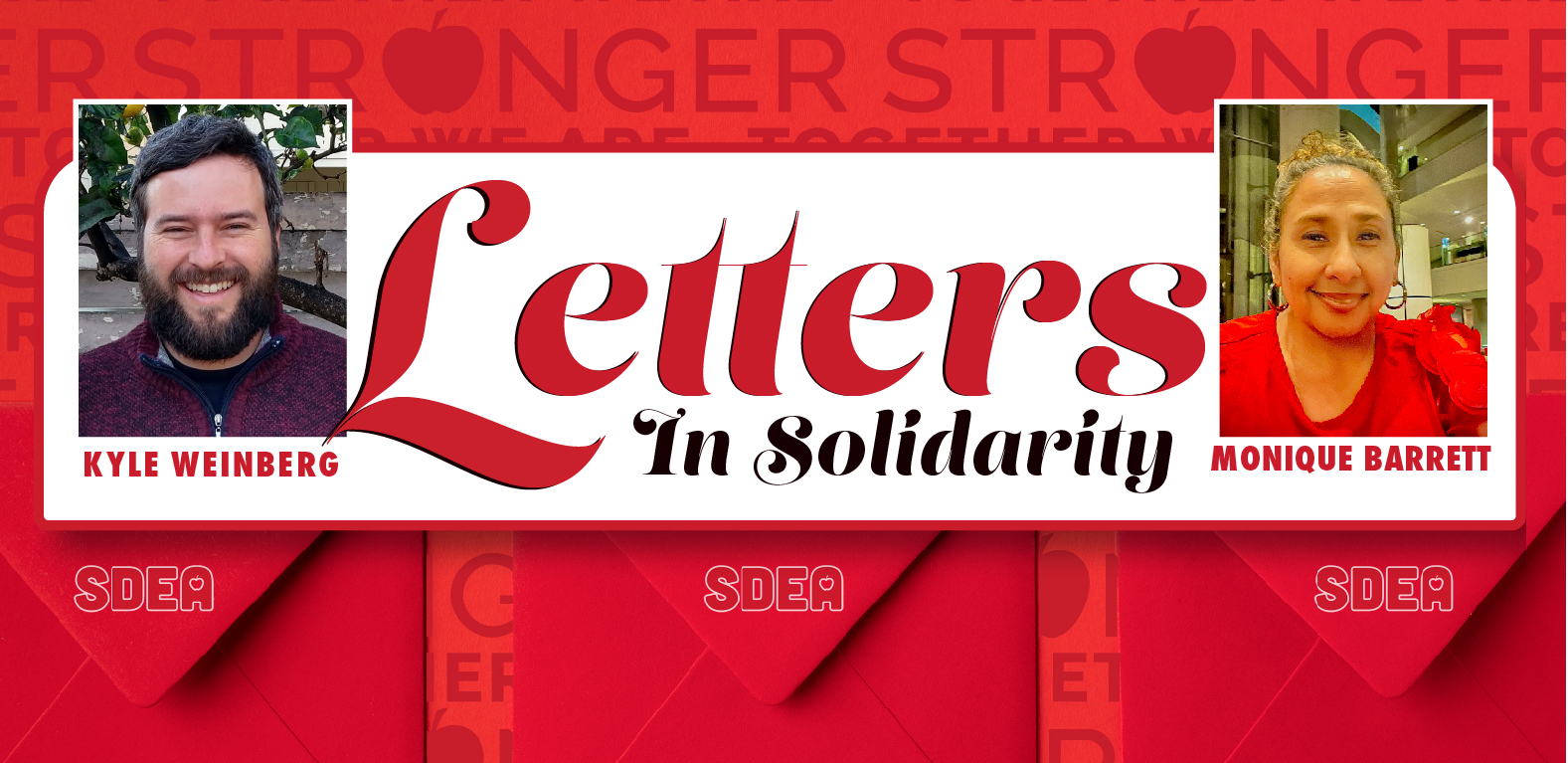
Fight for Our Schools on May 17
We hope that everyone returned from spring break rested and recharged as we head into the final stretch of this school year. These have been challenging months for all of us as we continue to absorb the impact of the threats from the federal administration to target our most vulnerable students and communities. The illegal directives from the US Department of Education to end equitable practices in our schools have generated fear and uncertainty and it has been tough to stand strong as union educators with the constant attacks on public education.
Alone as school communities feeling the weight of defending ourselves from those who seek to weaken us, we can feel isolated and powerless. What gives us hope is our history as unions, allied with community organizations, in successfully pushing back on attempts to dismantle public education and rollback the gains of the civil rights era to combat systemic inequities. Today, this movement for education justice is manifested in our statewide We Can’t Wait contract campaign for fully staffed, stable and inclusive schools that we are taking on with 31 other unions and nearly 80,000 union educators throughout the state.
In line with our We Can’t Wait contract platform, our SDEA bargaining team proposed a package of solutions on March 27 to address our district’s special education staffing crisis like monthly case management days and a pathway for educators to be reimbursed for obtaining a Special Education credential. Our students with disabilities struggle to overcome obstacles when the district can’t fill vacancies for special education teachers who tailor instruction to their individual needs. Unfilled positions increase the workload for the rest of the educators in a school, impairing our ability to get all students in our classrooms the support they deserve. Cuts to special education funding from the federal government would add to the instability for our highest need students.
We won't stand by while the Trump/Musk administration seeks to undermine public schools. Education is a non-partisan issue. Students in poverty and students with special needs deserve resources and support in our schools – we can all agree on that. The Trump/Musk administration is targeting students and families in our communities with vicious plans to dismantle public education. It’s unacceptable and we’re fighting back.
On May 17, we’ll be mobilizing in San Diego and joining union educators and allies across the state to demand that Congress protect funding for our schools and our students’ civil rights. Join us!

SDEA History Corner: The Solid Three
by Gail Boyle, President of SDEA-Retired
Picture 1917 San Diego. Balboa Park had just been created for the Panama-California Exposition 1915-1917, transportation was by street car and horse and buggy. Women dressed in long skirts. Men wore hats. Streets weren’t paved. San Diego City Schools had 1 High School (San Diego High) and 13 elementary schools. There were no junior highs.
The old San Diego High School - the “Gray Castle”
More than 100 years have gone by since the inception of SDTA (later SDEA). Prior to the Spring of 1917, there was no teacher organization in San Diego. By the beginning of the second semester of 1918-19, the San Diego Teachers Association was a functioning organization with a membership of 90% of the teaching personnel. Something must have happened. Something had.
The story begins in April 1917 with the election of three new members to the Board of Education. During the campaign for school board, these three candidates, known as “the solid three” had a list of changes they wanted to make – some limiting academic freedom and getting rid of Superintendent McKinnon, who teachers generally approved of. At the time teachers were more timid about political action than now.
If there were any doubts about the designs of the “solid three” those doubts were dispelled when, on Thursday morning, May 24, each teacher received at his/her respective school a questionnaire from the Board of Education. The following are some excerpts:
- Do you wish to remain in your present position at the city schools?
- The vote of the people seems to indicate that certain changes in the schools are necessary. Do you feel that you can work in harmony with the new management and give them the loyal support necessary for success…? If not, state your reasons.
- Kindly enclose your reply in self-addressed envelope and mail within three days.
What would your response be, remembering that there was no contract, no advocate organization and no due process rights? Question 1 seems innocuous enough. However, considering question 2, it is apparent that it implies a penalty awaiting any teacher who should fail to answer the questions with proper servility.
The letter was received by the teachers with consternation and fear. Many teachers could accede to the request of the questionnaire only by surrendering their professional ideals. On the other hand, they were under no illusion as to the probable consequences if they failed to respond.
Three teachers at San Diego High School weren’t about to return the questionnaire, but realized that as individuals they would not be able to protect themselves, so they held a meeting at the University Club and invited all teachers at San Diego High to come to make a decision about responding to the Board. Their proposal was to send a group response to the Board, rather than individual.
San Diego High teachers met and of the 94 teachers, 91 came to the meeting. They voted 76 for the group response instead of individual responses, 5 against, 10 abstentions. Those who signed knew there might be consequences. Their letter stated they were sending a collective response, that they could not respond to question 2 without knowing what “certain changes” meant, that they wanted individual contracts abolished and that there should be tenure like others in governmental service, conforming to civil services regulations. Needless to say, there was much turmoil. The Board had never seen collective demands from teachers. The issue of tenure was particularly distressing to the Board of Education.
CTA was at the forefront of the battle for tenure for the next 20 years. Today we are used to teachers having rights along with responsibilities, but those rights were not present at the beginning.
This action was not without consequences… learn more in our next History Corner!
SDEA Scholarships Process
Did you know that there are college scholarships available for SDEA members and their dependents?
Every year, our union proudly offers scholarships to support the educational goals of members and their families. There are specific applications for high school students beginning college or continuing college dependents of SDEA members, and for SDEA members pursuing education to enhance their career as educators. This year’s deadline for submission is Friday, May 2, 2025, at 5 p.m. PST.
Get the full details and access the application forms here!
Who decides who gets a scholarship?
Each year, the SDEA Scholarship Committee (a group of members appointed by the SDEA Board) takes on the important task of reviewing applications. Lisa Steinberg, the SDEA staff liaison, receives all submissions and preps them for review before handing them over to the Scholarship Committee:
- All identifying information is removed to keep the process fair and anonymous.
- Reviewers are carefully assigned to avoid conflicts of interest. Committee members never score applications from their own school cluster, to avoid reviewing applications from their students or colleagues.
- Every application is reviewed by at least two committee members using a consistent scoring rubric.The full committee then meets to review scores and determine scholarship recipients.
On average, 8 to 10 scholarships are awarded each year out of 40–50 applications received.
If you're an SDEA member and interested in serving on the committee, reach out to Lisa Steinberg. Your union is always stronger when YOU are involved!
How are SDEA scholarships funded?
SDEA scholarships exist through member contributions.
Much like contributions to our union’s PAC fund, scholarship donations are voluntary and separate from regular union dues. These scholarship fund contributions are one small way that our union solidarity can make higher education more accessible, in a system where the high cost of college makes it inaccessible to many.
Are you already contributing to the SDEA scholarship fund? You can make a difference by authorizing a monthly donation online via DocuSign, or by downloading a printable form here. Member generosity helps students and educators pursue their dreams, and builds our collective solidarity!
Know Your Rights & Know Your Vote: 2025 Post & Bid
We need to ratify an agreement to continue phasing out Fall "Excessing"!
- Read the full agreement: Ongoing Implementation of 2025 – 2026 and 2026 – 2027 Pilot Minimizing Fall Transfers
- Know Your Vote (An overview of what a Yes or No vote will mean)
- Know Your Rights: Post & Bid 101 (An overview of the process)
- Frequently Asked Questions (Answers to frequently asked questions - a living document that can be updated with more questions as needed)
Context: A More Stable Transfer Process
Each year, school staffing shifts based on student enrollment, which determines funding. While our union contract includes protections during these changes, Fall Involuntary Transfers (“Excessing”) has remained especially disruptive: educators are forced to pack up classrooms they just set up and leave the students and families they just met, all due to enrollment estimates from the prior year that did not materialize in the Fall.
To address this, SDEA members negotiated an agreement with the District in May 2024, launching a new transfer process that prioritizes stability by piloting a new version of Article 12: Transfer Policies. A joint Transfer Monitoring Committee (TMC) including both District staff and SDEA members has been actively overseeing the pilot by monitoring real-time enrollment data & recommending improvements to processes with the end goal of phasing out Fall excessing.
Now, Members Need to Vote!
The pilot agreement expires June 30, 2025, and only addressed the transfer process for the 2024 - 2025 school year. The SDEA bargaining team recently began negotiating permanent improvements to the transfer process for our next contract, but we do not have an agreement yet with the district on Article 12. To keep existing improvements and continue phasing out Fall “Excessing,” SDEA members must vote to ratify this agreement.
Check your work email for your electronic ballot from SimplyVoting!
- All active SDEA members will get an electronic ballot from Simply Voting tomorrow at 6:00am sent to your work email.
- Voting will be open Wednesday, April 16 until Monday, April 21 at 5:00pm.
- If you do not get a on April 16, please reach out to the SDEA elections committee immediately: sdeaelections@sdea.net


